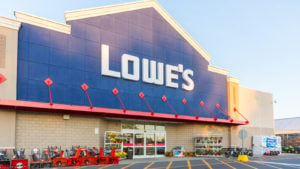Maintaining stability and security in investment portfolios is vital in an adverse macroeconomic environment. For instance, the current higher-for-longer interest rate environment coupled with other volatile macro elements may lead stocks into an unexpected and sudden downfall.
Therefore, investors often seek out recession-proof stocks when escaping turbulent financial markets. These stocks have fundamentals that allow them to survive and flourish during difficult times — a fundamental and progressive resilience against economic downturns. Here is an examination of the tactics and results of seven top companies leading across sectors. In today’s article, we break down the essential characteristics that make these companies fit the story of recession-proof stocks.
Unwavering strength and flexibility are the common threads that underpin these enterprises’ resiliency. Using rigorous operational efficiency, steady revenue growth and customer-focused strategies, these companies resist market fluctuations and economic unpredictability. From cutting-edge digital sales tactics to an unwavering emphasis on cost control, every business demonstrates qualities that solidify its standing as an industry leader. Discover the strategies behind these business titans’ capacity to withstand financial disasters and come out stronger.
Netflix (NFLX)

Netflix (NASDAQ:NFLX) has seen a boost in operating income. This shows its profitability and operational efficiency, demonstrating how well the business has managed expenses and expenditures in technology and content. Netflix had a 54% year-over-year (YoY) rise in operating income in Q1 2024, reaching $2.6 billion. The increase in operating income underscores Netflix’s capacity to produce increased returns from its revenue streams while skillfully handling OpEx.
Moreover, Netflix’s operating margin increased by 7 percentage points annually in Q1 2024, from 21% to 28%. This enhancement highlights Netflix’s accomplishments in improving cost control and operational effectiveness. Further, Netflix’s higher-than-expected revenue in the first quarter was the main factor driving the rise in operating profits. Overall, with its wide selection of content and cutting-edge technology, Netflix positions itself as a recession-proof stock.
Procter & Gamble (PG)

The conglomerate Procter & Gamble (NYSE:PG) is a leading consumer goods company that produces and markets a wide variety of daily goods, from personal care products to home necessities. This moat guarantees steady demand even during lean times.
In comparison, in Q3 2024, Procter & Gamble’s diluted and core EPS increased by 11%. This increase highlights the company’s successful cost control and revenue optimization tactics. Moreover, based on attempts to expand gross margin, favorable commodity costs, pricing tactics and productivity gains, Procter & Gamble’s core gross margin was boosted by 3.1%.
Additionally, the operating margin increased by 0.9%, which signifies the company’s focus on operational edge and cost-effectiveness. With an adjusted free cash flow productivity of 87%, Procter & Gamble demonstrates sharp cash management and capital allocation. These elements raise market value and help the company make a mark on the list of recession-proof stocks.
Restaurant Brands (QSR)

The parent business of Burger King, Tim Hortons and Popeyes, Restaurant Brands (NYSE:QSR), prospers from its fast-food brands worldwide. Despite economic swings, the company targets essential consumer demand with reasonably priced eating alternatives.
With a 4.2% YoY rise in comparable sales and an 8.4% growth in net restaurant revenue (Q1 2024), the overseas segment contributed to an 11.6% increase in system-wide sales. Despite difficulties in some areas, Restaurant Brands’ global operations showed tenacity and kept growing. Digital sales accounted for more than 50% of system sales internationally, showing how well Restaurant Brands’ non-domestic markets adopted digital platforms.
Further, despite comparatively stagnant traffic, Burger King U.S. outperformed the industry with a 3.9% YoY gain in comparable sales. Restaurant Brands’ “Reclaim the Flame” strategy, which focuses on core stocks like flame-grilled hamburgers and strong value messaging, has been successfully implemented, as seen by this increase. Hence, these initiatives enhance client happiness and sales performance, making Restaurant Brands a recession-proof stock.
Lowe’s (LOW)

The home improvement retailer Lowe’s (NYSE:LOW) is a strong option amid economic uncertainty since it caters to customers’ desire to invest in their living spaces by providing necessary goods and services for do-it-yourself projects and upgrades. Lowe’s saw an increase in Pro and online sales in Q1 2024 despite a 4.1% YoY fall in comparable sales overall. Further, with a strategic focus on an underrepresented group, Lowe’s targets small- to medium-sized professionals, who are estimated to make up half the $500 billion Pro market.
Moreover, investments in growing capabilities demonstrate a focus on providing professional clients with quick services, such as managing larger order deliveries to project sites and building more Lowe’s Pro supply outlets. Despite many obstacles, online sales increased 1% YoY in the first quarter, demonstrating Lowe’s dedication to its online presence. Offering same-day delivery alternatives through a partnership with Shipped and DoorDash (NASDAQ:DASH) improves accessibility and convenience for customers. Therefore, these fundamental elements make the company a top recession-proof stock.
Pfizer (PFE)

The multinational pharmaceutical company Pfizer (NYSE:PFE) has solid demand for its goods regardless of economic situation. It produces a wide range of medications and vaccines, including essential healthcare items like Comirnaty (the COVID-19 vaccine). Pfizer announced $14.9 billion in total sales for Q1 2024.
Moreover, the robustness and diversity of the company’s product range are demonstrated by its capacity to produce substantial revenue and achieve double-digit operational growth, even when COVID-related goods are excluded. This variety lessens the effect of changes in the market for particular goods.
Further, in Q1 2024, operating sales in the oncology segment increased by 19% YoY. The significant rise in oncology sales demonstrates Pfizer’s strong position and the market demand for its cancer treatments. Overall, this focus on cost-effectiveness improves performance, expands margins and supports Pfizer’s position as a recession-proof stock.
Johnson & Johnson (JNJ)

Johnson & Johnson (NYSE:JNJ) is a diverse healthcare company in the consumer health, pharmaceutical and medical device sectors. It offers important healthcare solutions that are in demand year-round.
For Q1 2024, Johnson & Johnson reported $21.4 billion in worldwide revenue, a 3.9% YoY increase. Moreover, with the COVID-19 vaccine taken out of the picture, operational sales increased by 7.6% YoY globally. The U.S. market grew at a rate of 7.8%, which suggests the company’s home market is well-established.
Additionally, at $13.6 billion in global sales and growing at a 2.5% annual pace, Innovative Medicine remains a major source of income for Johnson & Johnson. Prominent oncology brands, including Darzalex, Carvykti and Erleada, helped fuel substantial expansion. Specifically, Darzalex alone saw an incredible 21% growth rate, and Tremfya saw a notable rise of 27.6% in the immunology sector. Overall, these core strengths make the company a standout contender for recession-proof stocks.
McDonald’s (MCD)

McDonald’s (NYSE:MCD), the fast-food restaurant giant, attracts consumers worldwide. It offers reasonably priced menu selections and is a well-known brand, enabling it to remain a mainstay in the fast-food sector even in recessionary times.
As of Q1 2024, McDonald’s has had comparable top-line growth for 13 consecutive quarters. Moreover, comparable sales for Q1 boosted by 30% over the previous four years. Positive comparative sales growth over time shows the high edge of McDonald’s marketing tactics to draw in consumers and boost revenues. The company can adjust to shifting consumer tastes and market conditions while retaining its competitive edge.
Further, McDonald’s held a biannual reunion outside North America and welcomed over 15K guests from almost 100 markets, showcasing the brand’s worldwide reach. Due to its global presence, McDonald’s can access a wide range of markets, laying a solid foundation for long-term growth. In summary, these fundamentals make the company an excellent addition to the recession-proof stocks list.
As of this writing, Yiannis Zourmpanos held long positions in NFLX, PFE and JNJ. The opinions expressed in this article are those of the writer, subject to the InvestorPlace.com Publishing Guidelines.

